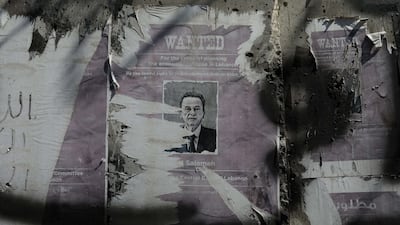The Salameh Papers: Full coverage here
The nephew of Riad Salameh, the former governor of the Banque du Liban (BDL), has been formally charged in Paris in a case involving ill-gotten gains, a source confirmed to The National.
Emile Salameh, 38, son of Raja Salameh, was formally charged on February 12 with criminal conspiracy, money laundering, and receiving stolen goods, following his interrogation before a financial investigating judge, AFP reported.
Through financial arrangements facilitated by his father, he is suspected of having acquired two apartments in Paris and villas in Lebanon.
He is also accused of managing, through a similar arrangement, two companies registered in Britain, which own several properties in London, AFP said.
The National previously identified assets under investigation in Paris based on confidential documents related to Raja Salameh, his father, and his family.
The properties include two apartments bought on Avenue Victor Hugo for €3.6 million in 2013 and on Avenue Raymond Poincare for €1.2 million in 2011.
These apartments have been rented out since their purchase for about €4,000 per month.
“We are nearing the end of the legal journey, and it's not unlikely that further formal charges may arise,” said William Bourdon, one of the lawyers representing the Sherpa association and the Collective Association of Victims of Fraudulent and Criminal Practices in Lebanon as civil parties in the case.
Riad Salameh, with the help of his brother Raja Salameh, is suspected of setting up a money laundering scheme inside the central bank through a 0.38 per cent commission imposed by a shell company, Forry Associates Ltd on commercial banks for each transaction with the central bank.
The commission money is suspected to have been invested in real estate empires in Europe and the US.
About $92 million worth of property has been seized by European authorities.
'Actions attributable to others'
Stéphane de Navacelle, Mr Emile Salameh's lawyer, did not comment on the case's details.
He told The National in an email that his client “has been interviewed in connection with an investigation opened for actions attributable to others and in which he was not involved”.
“Mr Salameh has endeavoured to assist to his full ability the investigators and will continue to do so without restraint. He is confident that the investigation will conclude to no wrongdoing on his part,” Mr de Navacelle said.
Three other people, at least, have been put under formal investigation in France regarding this case: Mr Salameh's former assistant at the BDL, Marianne Hoayek, his former romantic partner, Anna Kosakova, and former minister Marwan Kheireddine.
Raja Salameh, who is the owner of Forry, has not been put under formal investigation. He failed to appear at his hearing in France in 2023 for medical reasons.
It was scheduled straight after the French judiciary issued an arrest warrant for his brother, Riad Salameh in May.
“In our view, Raja is a key player in the organised predation orchestrated by Riad and his clan. He presented a medical certificate to evade his hearing: his lifestyle raises doubts about his claimed inability to travel for health reasons,” Mr Bourdon told The National.
The Salameh brothers have previously denied any wrongdoing, with Mr Riad claiming his wealth was lawfully acquired through investments he made before he was appointed as the BDL Governor in 1993.
He said that he has made his money through his time as an investment banker, investments and other legal ways.
As the long-term head of the central bank, he has been one of the figures held responsible for the 2019 economic collapse in Lebanon that has been blamed on decades of mismanagement and corruption among the country's ruling elite – including its banking sector.


